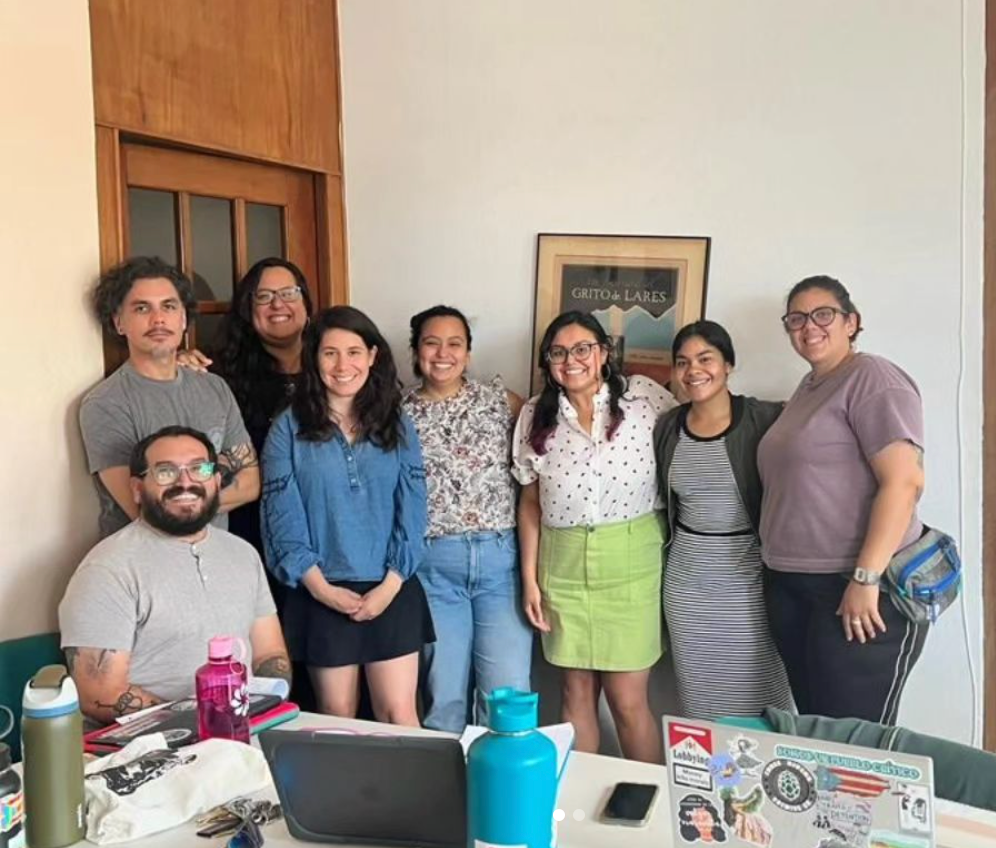The Transformative Food Systems (TFS) Fellowship at the University of Michigan is rooted in the idea that bold leaders are urgently needed who reflect the communities most affected by intertwined environmental, health and economic food systems crises. Summer 2024 SFSI Internship applications open February 15th, learn more here.
Here are what our first cohort of TFS Fellows were up to for Summer 2023:
Coco Rios Escobar
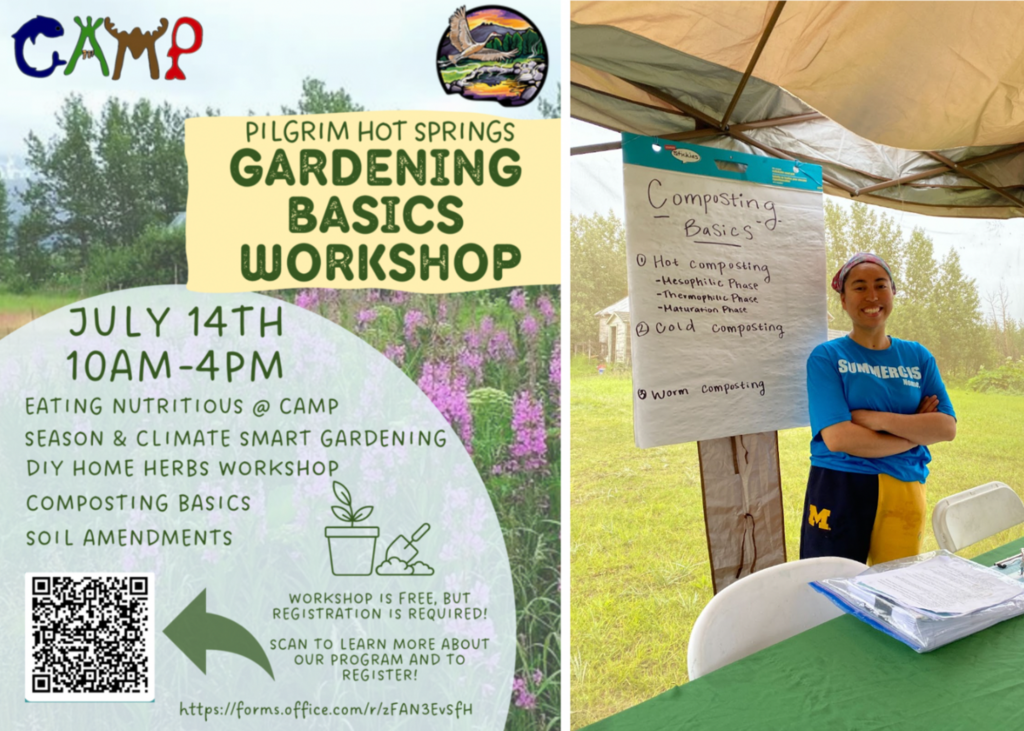
Internship Site: Chronic Care, Active Management, and Prevention (CAMP) Department at Norton Sound Health Corporation
Where were you for your internship this summer?
I completed my internship in Nome, Alaska for 12 weeks during Summer 2023.
What organization did you work for?
I worked for the Chronic Care, Active Management, and Prevention (CAMP) Department at Norton Sound Health Corporation which provides healthcare services to Nome and 15 surrounding villages of the Bering Strait region of northwestern Alaska.
What were your responsibilities?
My primary responsibility was to facilitate 6 weeks of Summercise–physical fitness and nutrition education classes–for youth of the Bering Strait region. Bringing in my experiences in volleyball, biking, traditional Mexican dance, and additional activities from my youth, I crafted lesson plans and led class sizes of about 25 students during Monday through Thursday afternoons.
In addition to hosting Summercise classes, I was able to participate in rotations such as nutrition and food service and co-lead projects such as gardening basics workshops. Over the 12 weeks of my internship, I was able to engage in community settings that supported food security and encouraged physical and active movement.
Summer experience summary:
My internship with Summercise was very insightful and inspiring for continuing on-track to earn my Registered Dietitian credential and work in local food and community settings. It was very fulfilling to support small gardening and farming efforts and be able to bring in my knowledge of nutrition. Moreover, I was able to gain some insight into local Alaskan Native cultural food practices. I am fortunate to have had all these combined experiences and it has reinforced my career goals of supporting not only food security but also food sovereignty efforts.
Are there any awards or other fellowships you received this summer?
I was fortunate to be a recipient of the SPH Internship Transition Fund. My host site also provided me with a modest food stipend!
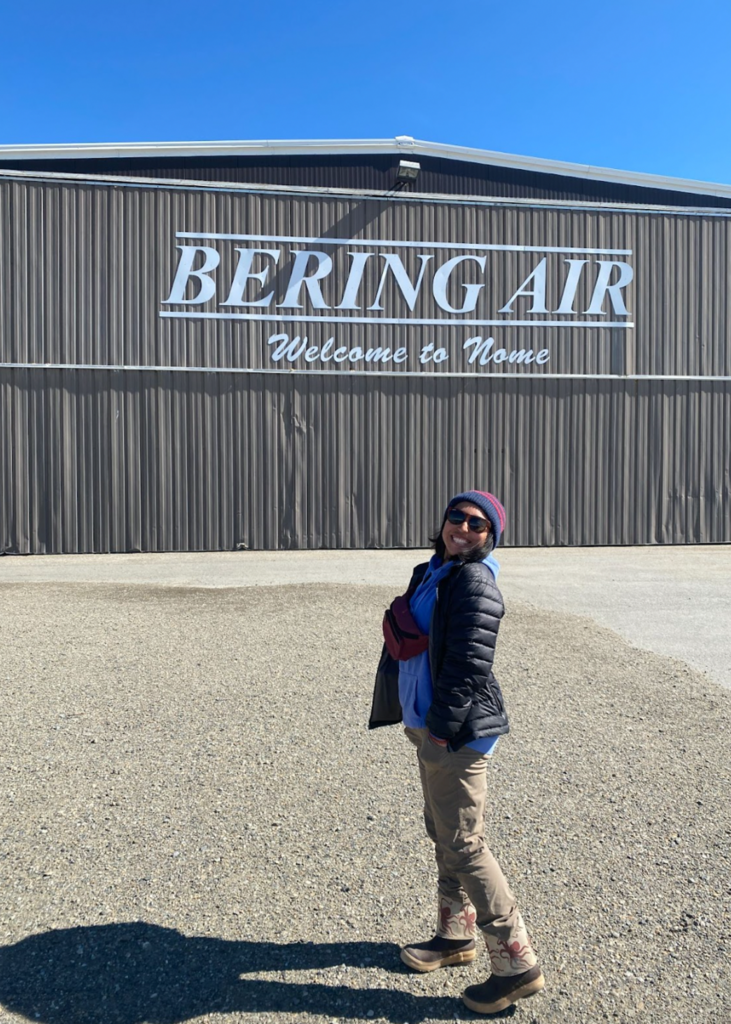
Lunia Oriol
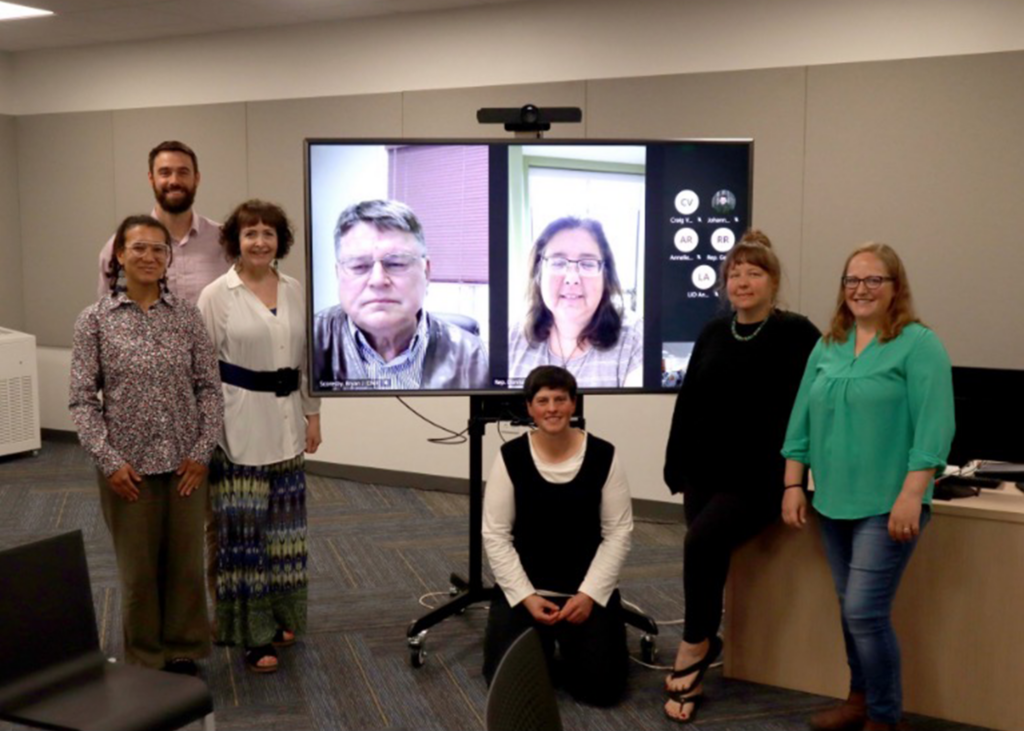
Internship Site: Alaska Food Policy Council and the Alaska Food Strategy Task Force (FSTF)
Where were you for your internship this summer?
Remote & Wasilla, Alaska
What organization did you work for?
This summer, I was a graduate student intern for the Alaska Food Policy Council and the Alaska Food Strategy Task Force (FSTF), an entity that was signed into existence by the Alaska Governor through House Bill 298. The FSTF is tasked with the goal of improving food security for the long-term benefit of Alaska’s communities, economy, and environment.
What were your responsibilities?
In my role as an intern, I supported ongoing discussions around food security and food policy through research, meeting logistics support, and data collection. The importance of data to support proposed policy was reinforced throughout my internship, and I learned how current data sources in Alaska inform our present understanding of the statewide food system. Given the prevalence of many rural and remote communities that exist across Alaska, I also deepened my understanding of the food system by scale (e.g., local, regional, statewide). While this internship reaffirmed my interest in food systems planning at the local level, I became more aware of the mechanisms on the state and federal levels that can drive or support change at lower scales, and I recognized the need for infrastructure that builds cross-scale interaction, such as additional food hubs in the state.
Summer experience summary:
My summer internship culminated in a co-written report that addressed 1) growing the agriculture industry, 2) growing markets for local products, and 3) improving transportation and infrastructure. I feel fortunate to have had this opportunity to collaborate with Alaskan farmers, legislators, grocers and retailers, healthcare professionals, nonprofit organizations, community leaders, and more to develop actionable state food policy.
L’Oreal Hawkes

Internship Site: Brightmoor Connection Food Pantry in Detroit
My summer internship was at the Brightmoor Connection Food Pantry in Detroit. My responsibilities included managing a vegetable plot, and creating a sustainable food community engagement curriculum. I also went to Molokai, Hawaii as part of the energy team with 10 other students to work with an organization called Sustainable Molokai. While there I engaged in community events, service groups, and gathered information to conduct an energy feasibility report for Sustainable Molokai. Taylor and Carlina are also in this capstone project.
My summer highlights were always with people. Working side by side with community members was extremely fulfilling and strengthened my belief in the collective effort. Whether it is for food sovereignty, land rights, or environmental justice, the collective effort is what makes thigs happen and get things done. I took pleasure bonding with the farmers at garden site I managed. In both the internship and the capstone project I was able to see what support in action really looks like. It gave me a lot to think about regarding my own journey in food and environmental justice. How do I want to show up for others? How do I want others to show up for me? These were some questions I thought about a lot.
Over the summer I also became a Mary Lucille Randolph and Lea King Dean Memorial Scholar by receiving a CEW+ Scholarship.
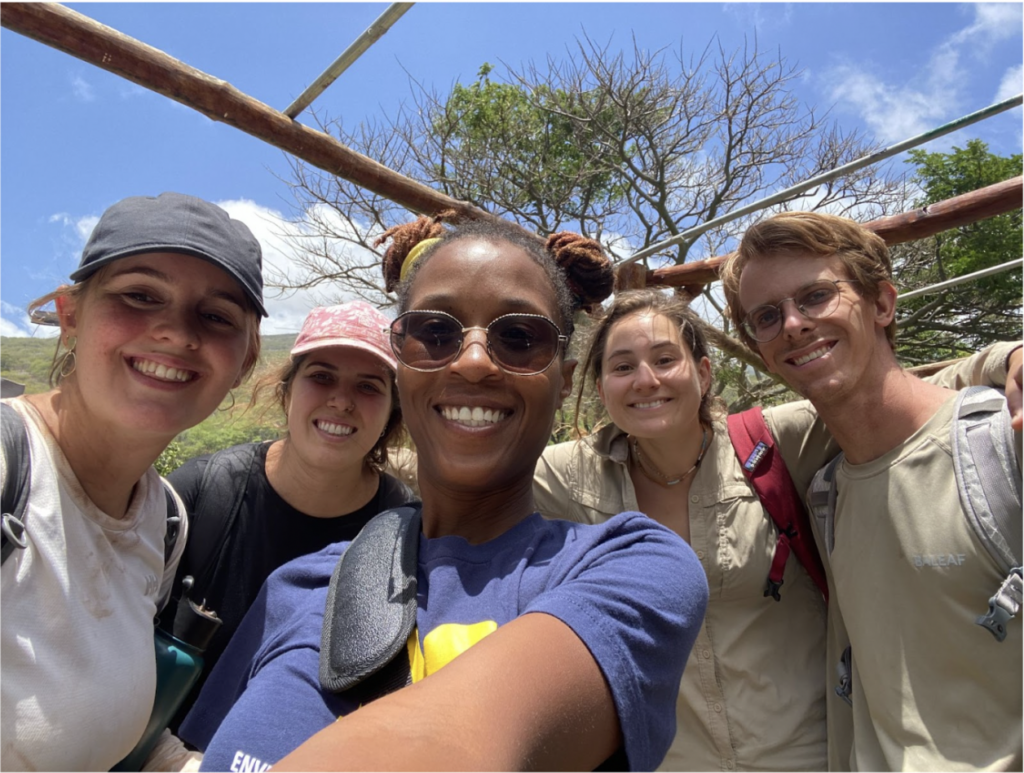
Kenneth Matthews

Internship Site: The Farm at Trinity Health
Where were you for your internship this summer?
Ypsilanti, Michigan
What organization did you work for?
The Farm at Trinity Health
What were your responsibilities? What were you doing?
Farm work: Planting, weeding, harvesting, packing csa shares
Nutrition work: Creating vegetable fact sheets, finding healthy vegetable based recipes, cooking, designing a senior food survey, designing a senior csa framework
Summer experience summary:
This summer I was able to examine and participate in sustainable food system efforts made by The Farm. Their mission of increasing food security and healthy eating is well in line with my educational studies of Nutrition and Food Systems. The Farm was established upon the idea that food is medicine and thereby grows a variety of vegetables by organic standards which are then distributed to Ann Arbor and Ypsilanti locals. My internship had two focuses: food production and preparation. What I loved about the farm is that not only do they produce food and tell people to eat healthy but they also show people how to eat healthy and that is where I came in. Every Wednesday, the farm conducts a farmers market in the Hospital and a CSA share distribution on the farm. Each of these gave me the opportunity to prepare a healthy meal featuring one or more of the crops in the distributions. This was easily my favorite part of the internship. People always hear “eat your fruits and vegetables” but are not shown what fruits and veggies to eat or how to prepare them. Over the course of my internship I prepared food samples with crops that even I had not tried. During the food samplings I would discuss the nutrient composition of the prepared meal however this information was rarely engaged. In the beginning this was discouraging however in time the fruits of my labor would pay off. As the internship progressed, people would tell me how their families tried the recipes and loved it. This was the highlight of my internship!
Too often we hear people complain about broken systems while doing nothing to actively find solutions. The Farm is committed to the alternatives and quite literally working from the ground up to improve the surrounding food system. From my time on the farm I learned different approaches to address food/ nutrition security in different populations. Moving forward I will apply the knowledge I obtained during this internship to future public health initiatives related to food systems
TK McKenzie
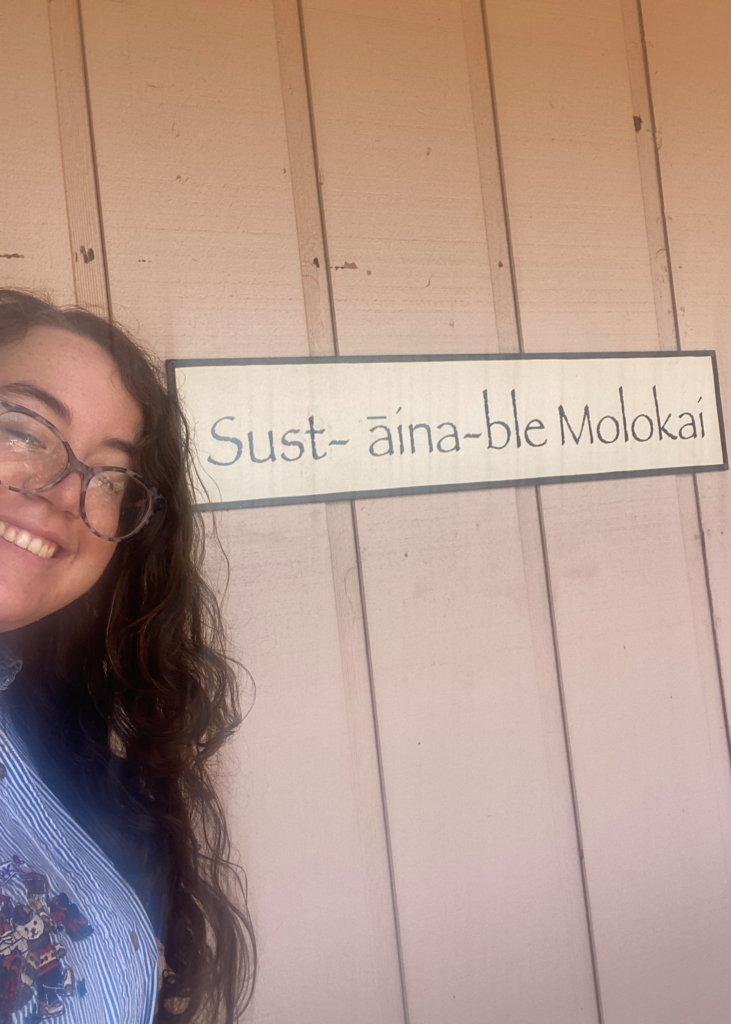
Internship Site: Sustʻāinable Molokai
1) Where were you for your internship this summer?
I worked with Sustʻāinable Molokai on the island of Molokai, Hawaiʻi.
2) What organization did you work for?
Sustʻāinable Molokai
3) What were your responsibilities?
Over the summer, I was responsible for mentoring their high school intern, who was in a program designed to support Native Hawaiian students and increase their future educational and professional opportunities. I also helped Sustʻāinable Molokai’s mobile market transition from their previous temporary location to a new permanent location with an off the grid refrigerated trailer that will help the nonprofit provide local produce to residents without the ability to travel to the permanent location.
CAPSTONE PROJECT
1) What’s your capstone project about? What are you trying to accomplish?
My capstone project is also with Sustʻāinable Molokai, but is focused on providing background research and development suggestions for their future food hub. A vital aspect of this work is its focus on building relationships with residents of Molokai, as a food hub is built within, by, and for communities— it cannot be created by an isolated group thousands of miles away. I look forward to supporting the food hub by mentoring new students who will be taking on the project after my team graduates.
2) What organization are you partnering with to do your capstone on?
Sustʻāinable Molokai
3) If it’s a group project, who else is in your capstone project group?
I am working with a group of students at SEAS, including two other TFS fellows— Carlina and L’Oreal!
Summer experience summary:
I am extremely grateful that I had the opportunity to be at home (O’ahu, Hawai’i) and to get to explore an area new to me (Molokai). This experience has changed my perspective of my home and how food systems should progress on the islands— it is not enough to just advocate for a transition to locally and sustainably grown foods, we must invest in these pathways. Without financial, structural, and social support, Native Hawaiian food ways will be lost. Our kupuna (Native Hawaiian elders) are deeply involved in sovereignty movements and there is a definite interest from a new generation of Native Hawaiians to follow in their footsteps— but without significant changes in how funding is allocated, they will be forced to move to the continent to find work. I was in this situation myself several years ago, it didn’t seem like there were any opportunities on Hawai’i that weren’t related to tourism. I have gained an understanding for the interconnected nature of agriculture, government, and education— this will help me immensely when I return to Hawai’i after graduation. This summer has reinvigorated my desire to be doing this important work within my communities on O’ahu. While it is difficult to be away from home for so long, I know the knowledge and opportunities I am gaining in Michigan will make it worth it.
Please also tell us about any awards or other fellowships you received this summer:
I am proud to announce that I recently received the Association for the Study of Food and Society’s Racial Justice Research Fellowship to support my work with Sustʻāinable Molokai.
Carlina Arango
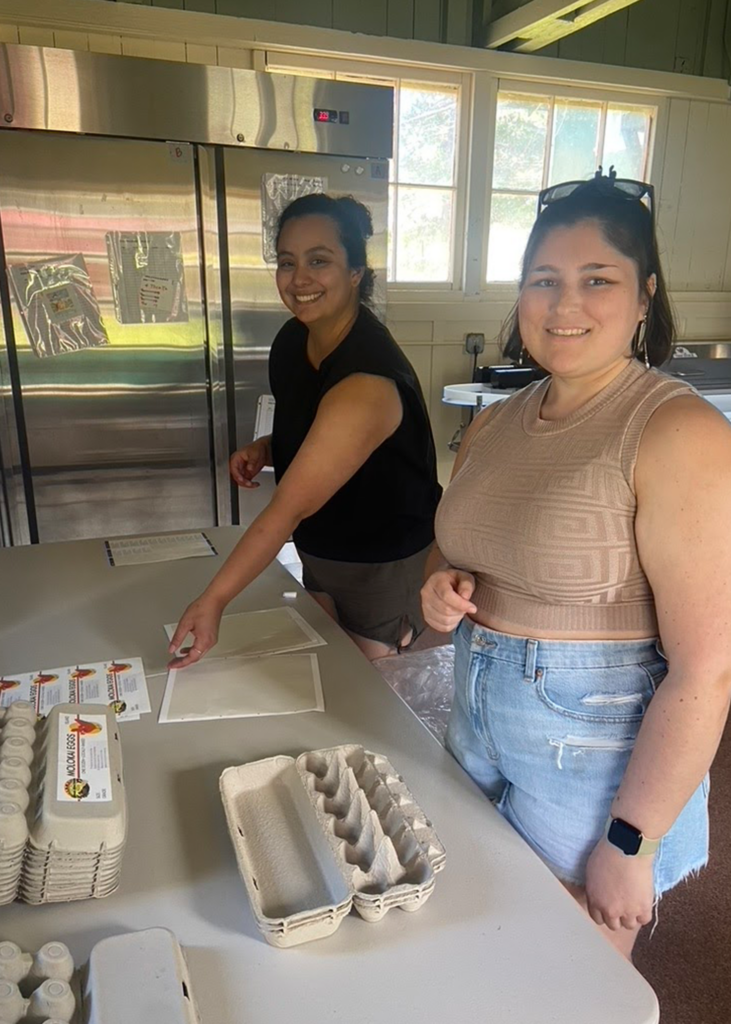
Internship Site: Institute for Agroecology – Research and Action
1) Where were you for your internship this summer?
I was in Puerto Rico this past summer for my internship.
2) What organization did you work for?
I worked for IALA-PR which stands for the Institute for Agroecology – Research and Action.
3) What were your responsibilities?
My primary responsibilities were supporting the Institute’s strategic planning process by evaluating the first retreat meeting’s outcomes and supporting the priorities and design for the upcoming second retreat meeting. I also mapped out the Institute’s network by creating a central database that synthesized partnerships and projects.
Summer experience summary:
This past summer in Puerto Rico confirmed the power of grassroots organizing to achieve food sovereignty for those most impacted by systemic oppressions. I was constantly moved by how much Puerto Ricans love their land and are willing to fight for it and their futures and how relationality and collectivity are critical to achieving those futures. This internship experience reinforced my passion for working in urban planning to shift how we form our built environment, specifically shifting the field’s resources to better support the visions and needs of grassroots and community-led initiatives regarding food sovereignty and beyond.
CAPSTONE PROJECT
1) What’s your capstone project about? What are you trying to accomplish?
My capstone project is focused on developing and designing the ʻUmeke ʻAi Center, an Indigenous Sustainability and Resiliency Hub. Through this project, I am supporting the development and design of the food programming since the Center will serve as a centralized Food Hub and Food Bank on the island, furthering efforts towards food sovereignty.
2) What organization are you partnering with to do your capstone on? Sustainable Molokai, a Native-led grassroots community development organization.
3) If it’s a group project, who else is in your capstone project group? Fellow TFS fellows TK McKenzie and L’Oreal Hawkes and three other SEAS students: Natasha Vatalaro, Ben Krueger, and Albert Ponce.
Please also tell us about any awards or other fellowships you received this summer?
2023 Eco-Friendly Mobile Farm Stand Scholarship from the Eco-Friendly Mobile Farm Stand Project. My summer internship was possible through funding I received from the Edna Bailey Sussman Fund for Graduate Environmental Internships.
